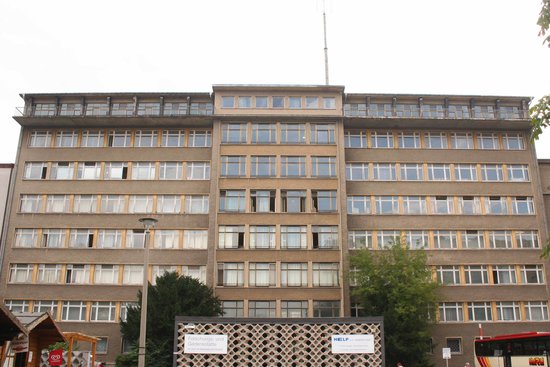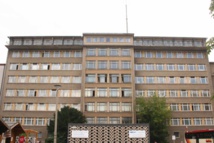The decision was made after a raft of allegations revealed a toxic sexual culture at the memorial, located in Berlin's north-eastern Lichtenberg district.
In a June letter to Culture Minister Monika Gruetters, former employees, volunteers and interns accused the museum's "upper echelons" of sexist behaviour.
They outlined what they described as a pattern of verbal harassment with sexual innuendo, unwanted touching, inappropriate invitations and late-night text messages.
At the centre of the allegations was Knabe's deputy, who has also been released from his job.
Neither Knabe nor his deputy have commented on Tuesday's decision by the board.
Opened in 1951, the prison provided the backdrop for the 2006 Academy-award winning drama "The Lives of Others" that documented the Stasi's power and its callous intrusion into people's lives.
Hohenschoenhausen is meant to serve as a reminder of the oppression carried out by the East German state, with those held at the prison having faced both physical torture and psychological abuse.
More than 11,000 prisoners were incarcerated at Hohenschoenhausen during its 40 years of operation. Many were state dissidents.
Others were sent to the prison for the simple crime of trying to leave the communist country, while some were critics of the regime who were kidnapped on the streets of West Berlin by East German secret service operatives.
-------------------------------------------------------------------------------------------------------------------
In a June letter to Culture Minister Monika Gruetters, former employees, volunteers and interns accused the museum's "upper echelons" of sexist behaviour.
They outlined what they described as a pattern of verbal harassment with sexual innuendo, unwanted touching, inappropriate invitations and late-night text messages.
At the centre of the allegations was Knabe's deputy, who has also been released from his job.
Neither Knabe nor his deputy have commented on Tuesday's decision by the board.
Opened in 1951, the prison provided the backdrop for the 2006 Academy-award winning drama "The Lives of Others" that documented the Stasi's power and its callous intrusion into people's lives.
Hohenschoenhausen is meant to serve as a reminder of the oppression carried out by the East German state, with those held at the prison having faced both physical torture and psychological abuse.
More than 11,000 prisoners were incarcerated at Hohenschoenhausen during its 40 years of operation. Many were state dissidents.
Others were sent to the prison for the simple crime of trying to leave the communist country, while some were critics of the regime who were kidnapped on the streets of West Berlin by East German secret service operatives.
-------------------------------------------------------------------------------------------------------------------









 Home
Home Politics
Politics











